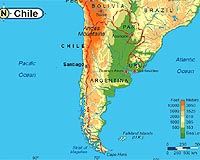| . |  |
. |
Beijing (AFP) May 11, 2011 China's decision to fine consumer products giant Unilever over planned price hikes sends a warning to other companies and highlights the growing anxiety in Beijing about soaring costs, analysts say. The rare move to slap a two million yuan ($308,000) fine on the Anglo-Dutch firm also shows the challenges faced by companies selling daily household necessities in a country obsessed with social stability, they said. The National Development and Reform Commission -- China's powerful economic planning agency -- said Friday that Unilever had "illegally disseminated news of price hikes" which sparked panic-buying of shampoo and detergents in March. "This is a very unusual measure. I think it is a way of scaring companies to think twice before they raise prices," Shaun Rein, managing director of China Market Research Group in Shanghai, told AFP. Unilever said it would "temporarily postpone" price increases planned for April 1 at the request of the NDRC after Chinese media published images of supermarket shelves stripped of soap and washing powder. For Dragonomics managing director Arthur Kroeber, the government's decision was "characteristic of an economy where the state still wants to intervene extensively in normal market operations". "It raises pretty serious concerns about the predictability of the operating environment for companies in the consumer market in China," said Kroeber, whose economic research firm is based in Beijing. China's leaders are on edge over spiralling food and housing prices, particularly as inflation has been a major factor in the popular uprisings that have swept across the Arab world. The country's consumer inflation rate remained stubbornly high at 5.3 percent in April, the government said Wednesday -- only a slight easing from the 5.4 percent seen in March, which was the highest level since July 2008. The central bank has responded to growing price pressures by hiking interest rates four times since October and repeatedly increasing the amount of money banks must keep in reserve -- effectively cutting their lending power. Authorities have also intervened directly in the market, warning a number of companies including Taiwanese instant noodle maker Tingyi not to raise prices as authorities crack down on hoarding and offer subsidies to the poor. "Just telling them not to raise prices is not necessarily going to be enough -- every so often, they need to make it clear that there's some cost to raising prices," said Kroeber. But the measures have so far had little effect on the price of basic necessities, partly because policymakers continue to intervene to prevent the Chinese currency from strengthening too quickly against the dollar. Food and housing costs, which includes utilities and rent, have outpaced overall inflation, soaring 11 percent and 6.5 percent respectively in the first quarter, increasing pressure on households already battling to make ends meet. "Consumers feel it is much harsher... food prices from yoghurt to milk to eggs to cooking oil have gone up 10-20 percent in the past six months," said Rein. Soaring global commodity costs have also squeezed profit margins for companies selling household products in China, who are being forced to absorb higher raw material prices rather than pass them on to consumers. "They will just have to eat it... there is not much they can do about it," said Kroeber. Companies not selling products considered daily necessities appear to have been excluded from the price controls, analysts say. US fast-food giant McDonald's and coffee chain Starbucks have increased the cost of some items in recent months due to rocketing commodity prices. IHS Global Insight analyst Ren Xianfang said Beijing "wanted to kill the chicken to teach a lesson to the monkey", citing a Chinese proverb. "The fact they have started to fine foreign companies says a lot about how the government is worried about inflation," Ren told AFP.
Share This Article With Planet Earth
Related Links Global Trade News
 Booming Chile grapples with uneven growth
Booming Chile grapples with uneven growthSantiago, Chile (UPI) May 9, 2011 Chile's economy is booming but officials warn currency appreciation, inflation and continuing dependence on commodities exports all carry risks that can spoil chances of consistent growth in the coming months. National Statistics Institute data indicated inflation was a continuing problem. Consumer prices rose 0.3 percent in April from March, data from the institute showed. The annual i ... read more |
|
| The content herein, unless otherwise known to be public domain, are Copyright 1995-2010 - SpaceDaily. AFP and UPI Wire Stories are copyright Agence France-Presse and United Press International. ESA Portal Reports are copyright European Space Agency. All NASA sourced material is public domain. Additional copyrights may apply in whole or part to other bona fide parties. Advertising does not imply endorsement,agreement or approval of any opinions, statements or information provided by SpaceDaily on any Web page published or hosted by SpaceDaily. Privacy Statement |